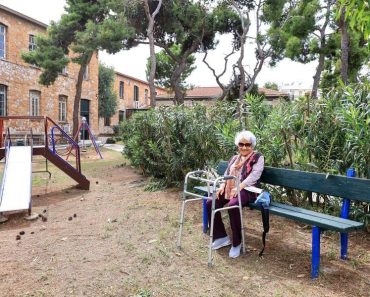When most people hear names like Zeus, Athena, or Artemis, their minds instantly leap to mythology textbooks or marble statues in museums. We tend to think of the Greek gods as relics of a long-gone civilization—powerful in story, but irrelevant in modern life. And yet, quietly and passionately, thousands of people around the world still honor them today. This living faith is called Hellenism, and though it draws on practices more than two thousand years old, it has found a home in the 21st century. What makes it so intriguing is how old rituals and modern life blend, creating something both familiar and entirely new.
A Recognized Religion Once More
For centuries, worship of the old gods was dismissed as folklore or myth. But in 2017, something remarkable happened: the Greek government officially recognized Hellenism as a legitimate religion. This wasn’t just a bureaucratic decision—it meant that priests could legally officiate weddings, temples could be established, and people who had practiced quietly for years could finally step into the open. For many, it was a moment of vindication, proving that their devotion was more than nostalgia.
Where the Sacred Lives Now
In ancient times, towering temples drew worshippers from across the Greek world. Today, the heart of worship is far more intimate. For many Hellenists, devotion happens at home. A corner of a room might hold a small altar adorned with candles, flowers, and bowls of fruit or honey. Incense smoke curls upward as prayers are whispered, and libations of wine or water are poured. While the ancients once offered animal sacrifices, modern practitioners replace those with symbolic gifts—cakes, bread, or even something handmade. The power lies in sincerity, not spectacle.
Festivals That Bridge Past and Present
While home is central, public celebrations haven’t disappeared. On the slopes of Mount Olympus each summer, the Prometheia Festival comes alive. Torch relays, offerings to rivers, and communal hymns echo ancient traditions, but they’re wrapped in the joy of community, art, and nature. For those attending, it’s not just a festival—it’s a chance to step into the footsteps of ancestors while creating something vibrant and new.
Many Paths, One Heart
If you ask a dozen Hellenists what their faith looks like, you’ll likely get a dozen different answers. Some are reconstructionists, working carefully to re-create rituals exactly as the ancients might have done them. Others are revivalists, adapting the old practices to fit modern life. Both paths are valid. For some, worship means chanting the ancient hymns; for others, it’s as simple as lighting a candle and pausing to reflect on the divine.
A Global Community
Though its roots are in Greece, Hellenism has spread far beyond. Organizations like YSEE and Labrys work within Greece, but international groups like Hellenion in the U.S. or communities in Brazil keep the tradition alive across continents. Each adds its own cultural layer, proving that the gods are not bound to one land—they travel wherever their worshippers do.
Ancient Words, Modern Voices
One of the most moving aspects of worship today is the continued use of the Homeric and Orphic Hymns. These ancient poems were written thousands of years ago to praise the gods, and when recited today, they carry a strange, beautiful weight. To speak the same words that might once have echoed through marble temples is to feel connected across time—as though generations of voices are all joined in the same prayer.
The Rhythm of Sacred Time
Time itself holds meaning in Hellenism. The ancients honored certain gods on specific days each month, and many modern practitioners follow suit. For instance, Artemis is honored on the 6th day, while Zeus often receives offerings on the 4th. Keeping this rhythm creates a sense of sacred order, tying daily life into something greater.
Gods as Living Beings—or Living Values
Not everyone relates to the gods the same way. Some Hellenists see them as literal, divine beings who hear prayers and respond. Others view them symbolically: Athena as wisdom, Aphrodite as love, Zeus as justice. Whether taken as archetypes, ideals, or deities, the gods continue to inspire and guide. That flexibility is one of the reasons the tradition thrives—it makes space for belief, philosophy, and personal meaning. Nature as a Temple For many, the most sacred experiences happen outside. The gods are felt in rivers, forests, and the sea—just as they were in the ancient world. A walk in the woods may feel like a visit to Artemis’s domain; the crash of waves might whisper Poseidon’s presence. In this way, worship blends with everyday life, reminding people that the divine is woven into the very fabric of nature.
Quiet Devotion Is Just as Powerful
Not all Hellenists share their faith openly. In some families or communities, polytheism is misunderstood, and worship must be private. But one of the most comforting beliefs within the community is that the gods care about sincerity, not visibility. A single candle lit in silence, a whispered prayer before bed—these are no less powerful than the grandest festival.
The Old Gods in Modern Times
What strikes me most about modern Hellenism is its adaptability. It proves that faith doesn’t need marble temples or blood sacrifices to survive. It can live in a small apartment, in a quiet park, or in the heart of someone halfway around the world. The gods are as present as they were thousands of years ago—not locked in myths, but alive in the lives of those who honor them. For anyone who has ever felt a tug toward mythology, history, or the natural world, it’s a reminder: the old gods never really left us. We just had to remember how to see them again.






